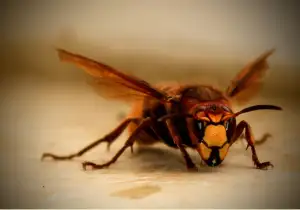Ants in the Kitchen? Say Goodbye to Unwanted Guests with our Expert Tips!

Having ants invade your kitchen can be a frustrating and unsanitary problem. Not only do they contaminate your food, but they also leave behind trails of pheromones, attracting more ants to join the party. However, fret not! In this article, we will provide you with expert tips on how to say goodbye to these unwanted guests and reclaim your ant-free kitchen. So let's dive in and learn how to tackle this pesky issue head-on!
Identify the Type of Ants Invading Your Kitchen
Identifying the type of ants invading your kitchen is crucial in effectively dealing with the problem. There are several common types of ants that may infest your kitchen, such as sugar ants, carpenter ants, and pharaoh ants. Sugar ants are attracted to sweet foods and can often be found near sugar containers or spilled sugary substances. Carpenter ants, on the other hand, are larger and known for damaging wooden structures. Pharaoh ants are small and notorious for spreading bacteria. By identifying the specific type of ant, you can tailor your approach to eliminate them more effectively.
Keep Your Kitchen Clean and Crumb-Free
To keep your kitchen free from ants, it is crucial to maintain a clean and crumb-free environment. Ants are attracted to food particles and crumbs left behind, so make sure to wipe down countertops, tables, and floors regularly. Sweep or vacuum the kitchen floor daily to remove any potential food sources. Pay extra attention to areas where you prepare and consume food, such as around the stove, sink, and dining area. Additionally, store food in airtight containers and promptly clean up spills or crumbs to discourage ants from entering your kitchen.
Seal Entry Points to Prevent Ants from Entering
To prevent ants from entering your kitchen, it's crucial to seal off any possible entry points. Start by inspecting your kitchen for cracks or gaps in windows, doors, and walls. Use caulk or weatherstripping to seal these openings. Don't forget to check for gaps around pipes and electrical outlets as well. Additionally, make sure that all screens on windows and vents are intact and free from tears. By sealing these entry points, you can effectively block the ants' access to your kitchen and keep them out for good.
Use Natural Ant Deterrents in Your Kitchen
If you prefer to use natural methods to deter ants from invading your kitchen, there are several options available. One effective method is to sprinkle cinnamon or black pepper around areas where ants are commonly seen. These spices act as natural repellents and can help keep ants away.
Another natural deterrent is vinegar. Mix equal parts of vinegar and water in a spray bottle and use it to wipe down countertops, cabinets, and other surfaces where ants may be present. The strong scent of vinegar disrupts the ants' pheromone trails, making it difficult for them to navigate and find food sources.
Lemon juice is also known to repel ants due to its high acidity. Squeeze fresh lemon juice onto cotton balls and place them near entry points or areas where ants are frequently spotted. The strong citrus scent will discourage ants from entering your kitchen.
Peppermint oil is another effective ant deterrent. Mix a few drops of peppermint oil with water in a spray bottle and apply it along baseboards, windowsills, and doorways. The strong smell of peppermint masks the scent trails left by ants, preventing them from entering your kitchen.
By using these natural ant deterrents, you can create an environment that is unappealing to ants and discourage them from invading your kitchen.
Set Up Ant Traps to Eliminate Ant Colonies
To effectively eliminate ant colonies in your kitchen, setting up ant traps is a highly recommended solution. Ant traps work by attracting ants with bait and then trapping them inside. You can purchase pre-made ant traps from your local store or make your own using simple household ingredients like sugar and borax. Place the traps near areas where you have observed ant activity, such as countertops or corners of cabinets. The ants will be lured to the bait and carry it back to their colony, which will eventually lead to the eradication of the entire colony. Remember to regularly check and replace the traps as needed until you no longer see any signs of ant activity in your kitchen.
Call Professional Pest Control if the Problem Persists
If despite your best efforts, the ant problem in your kitchen persists, it may be time to call in professional pest control. Pest control experts have the knowledge and experience to effectively eliminate ant colonies and prevent future infestations. They will assess the extent of the problem, identify the type of ants invading your kitchen, and implement appropriate measures to eradicate them. Professional pest control services can provide long-term solutions that ensure a clean and ant-free kitchen. Don't hesitate to seek their help if you find yourself unable to get rid of ants on your own.
By following these expert tips, you can bid farewell to unwanted guests in your kitchen. Identifying the type of ants invading your space is crucial, as it helps determine the most effective approach. Keeping your kitchen clean and crumb-free is essential in preventing ants from being attracted to your space. Sealing entry points will further deter them from entering. Natural ant deterrents can be used as a safe and eco-friendly alternative to chemical sprays. Setting up ant traps will help eliminate ant colonies and prevent future infestations. If all else fails, don't hesitate to call professional pest control for assistance. With these measures in place, you can now enjoy an ant-free kitchen and focus on crafting culinary excellence with peace of mind.
Published: 31. 01. 2024
Category: Home



